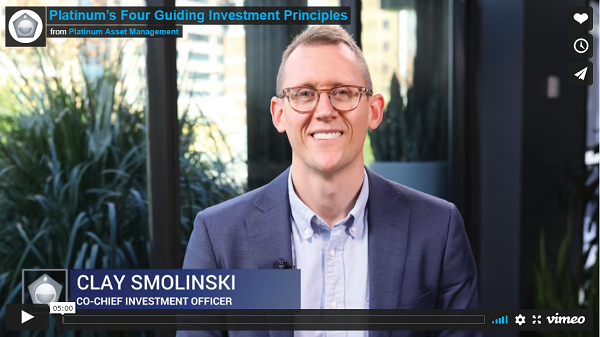There are four principles that guide our investment approach at Platinum and guide our search for mispriced stocks in the market. These principles have been consistent since the firm's founding in 1994, with past stock picks Facebook and Samsung Electronics used here as cases to illustrate the point.
Principles for finding mispricings
The first principle is the price you pay heavily influences the ultimate return you’ll make on an investment. And this is especially true when viewed over a portfolio of stocks. Over the long run, price matters.
The second principle is the truly great investment opportunities tend to carry a seed of discomfort when you're making them. If everyone thinks that an investment is a sure thing, and they're excited to be making that investment, we need to stand back and ask, why would it then be mispriced in my favour?
The third principle is you're more likely to find those mispricings and great opportunities in areas outside of the spotlight, so go and look at the orchard less picked over. So there's always been an impetus to look at industries, and countries that are just getting less attention at the moment.
And the fourth principle is the most important, because it really addresses the heart of the question: What type of situations create mispricings in markets? And the observation is the value of business is very subjective, it’s in the eye of the beholder. The reality is the stock prices are not purely set by a business's fundamentals. Instead they're heavily influenced by emotion. So it's the state of a narrative around the business, it’s the state of investor confidence around that business that is influencing its price.
Two major emotions drive mispricings
So we look for situations around those emotional decision states that are known to repeatedly cause mispricings in stocks. They really boil down to two major buckets.
The first is what we would call ‘temporary uncertainty’. What we know is when there's a problem, humans can't help but to focus on it. This is called recency bias. And when you focus on a negative, that tends to lead to low expectations, and low expectations tend to lead to mispricings.
The second major bucket is what we would call ‘long-term change’. This comes down to the fact that investors find it difficult to accurately price in a future that looks very different to what we are used to.
These two situational buckets are common features in many of our investments, and we can bring this to life with two examples.
So a great example of temporary uncertainty that most would remember would be Facebook during the Cambridge analytic data leak. This data leak gained worldwide public and political attention at the time, and the share price fell roughly 40% as people worried about more future regulation or users deleting their Facebook accounts. Viewed with a different lens, this event actually proved the strength of the business to us. Despite very negative sentiment, both user engagement and advertisers’ willingness to spend on Facebook, continued to grow the entire time, it really never missed a beat. And this is a great example of a singular focus on a negative, created a large mispricing in the stock.
An example of long-term change is Samsung Electronics, a company we have consistently held since 1998. In the 1980s, Samsung was a humble contract manufacturer of consumer electronics. So they would assemble TVs and stereos for brands like Sanyo, NEC and General Electric. The company had the classic mentality of being happy to start at the low end, learn by doing, then then always wanting to innovate and move up into higher end products. Following this mindset, by the early 1990s Samsung started making low end semiconductors. By the late 1990s, they were been beating the Japanese at the high end. And by the mid-2000s, Samsung had become one of the most dominant semiconductors and consumer electronic companies in the world.
History shows us that markets and businesses are ever changing. But we feel our investment approach and guiding principles are timeless.
Here is a video version of the four principles.

Clay Smolinski is Co-Chief Investment Officer and Portfolio Manager at Platinum Asset Management. This information is general commentary only. It is not intended to be, nor should it be construed as, investment advice. Before making any investment decision you need to consider (with your financial adviser) your particular investment needs, objectives and circumstances.